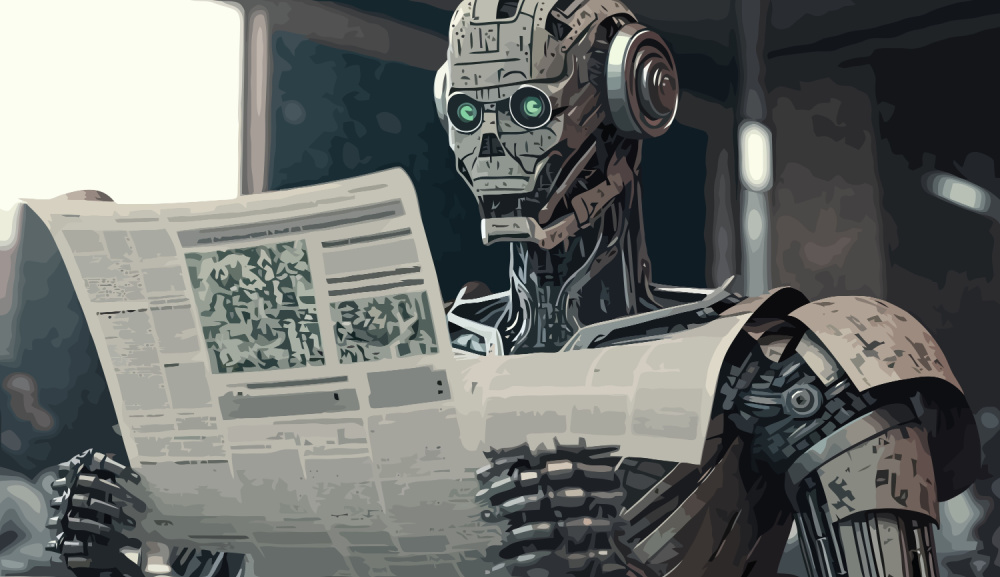Welcome to our roundup of this week’s spiciest AI news.
This week Sora impressed filmmakers and depressed actors.
Researchers created an AI hive mind.
And doctors used AI to duplicate patients and spot cancer they missed.
Let’s dig in.
No lights, no camera, AI action
Two weeks ago we were blown away by OpenAI’s text-to-video model Sora. This week OpenAI made overtures to Hollywood filmmakers asking, ‘Hey, could you guys use this?’
Profit-driven production companies are understandably intrigued, while actors are unsurprisingly less thrilled at how amazing Sora is.
Imagine being an actor, set builder, or camera operator and watching the latest examples of videos made using Sora.
‘air head’ is one of the first short films made using #Sora by @OpenAI.
the response so far has left us floating.🎈 pic.twitter.com/bBR6IMZQ8M
— shy kids (@shykids) March 25, 2024
It’s not just people in Hollywood who may need to rethink their career prospects. A recent report says that in a “worst-case scenario” where AI becomes deeply integrated into business processes, as many as 8 million jobs could be lost in the UK.
The authors of the report used the term “job apocalypse” which doesn’t sound like a good thing.
Agree to disagree
The UN adopted a resolution for the development of “safe, secure, and trustworthy” AI systems and called for inclusive and equitable access to the technology for developing countries.
That sounds like a great idea, now if only they could get member states to actually follow a UN resolution. Expecting the UN to be united feels a bit like expecting OpenAI to be open.
Representatives to the UN might consider using AI to write their next address. Researchers published a study that showed how personalized LLMs are significantly more persuasive than humans.
One application of AI that isn’t driving consensus is live AI facial recognition. This week police used the tech in their arrest of 17 perps in London. Taking bad guys off the street sounds good, but do the ends justify the means?
Resistance is futile
Researchers proposed methods for building an interconnected “Collective AI” where models share knowledge with each other to create a kind of “hive mind.”
That sounds pretty cool until you hear some folks make reference to the Borg from Star Trek to explain the concept.
“Resistance is futile. You will be assimilated,” is probably an accurate assessment of our AI future. Let’s hope we enjoy the experience.

Stability AI CEO Emad Mostaque thinks he could make it work out ok. Mostaque stepped down from his role and the company’s board to pursue “decentralized AI”.
The idea of reducing the concentration of power over AI is an interesting concept. Will the companies that hold that power allow it to happen?
Meanwhile, LLMs keep getting smarter. Researchers developed Quiet-STaR, a technique that teaches language models to think before they speak.
More deep fakes
People are still figuring out that just because you can do something, doesn’t mean you should. Arizona Senate candidate Kari Lake was hit by a non-consensual deep fake video made by a digital news outlet claiming she endorsed them.
The video’s makers are taking the ‘We were just trying to help’ approach in their defense, but that may not cut it. The video is pretty good though, and highlights the danger of AI deep fakes in politics.
It’s getting harder to spot deep fakes, and easier to make them. This week we also took a look at which countries are most interested in deep fake creation.
AI saving lives
The incredible way AI is changing healthcare is probably one of the biggest arguments for AI’s benefits outweighing the potential risks.
AI is saving lives right now with the UK’s National Health Service using a tool called “Mia” to identify cancers that doctors missed.
Predicting future health challenges you’ll face or how your body will respond to a certain treatment relies on your doctor making an educated guess.
A new AI tool can create your digital twin based on your health records so doctors can forecast and simulate treatment options.
In other news…
Here are some other clickworthy AI stories we enjoyed this week:
- The AI and Big Data Expo North America 2024 will focus on challenges and opportunities that lie ahead for the industry.
- Amazon invests $2.75b in AI startup Anthropic in its largest venture investment yet.
- Intel confirms Microsoft’s Copilot AI will soon run locally on PCs.
- Startup Databricks just released DBRX, the most powerful open-source LLM yet. It beats Llama 2, Mixtral MoE, Grok-1, and comes really close to GPT-4.
- ChatGPT can produce medical record notes 10 times faster than doctors without compromising quality.
- OpenAI gave a few creatives access to Sora. Here are the videos they came up with.
- Claude 3 Opus now beats GPT-4 to the top of the Chatbot Arena list. Here’s a quick look at the LLM race since May 2023.
[Community creation]
Top-15 Chatbot Arena LLM ratings (May ’23 – Now)Credit: Peter Gostev https://t.co/OgnLu3rj64 pic.twitter.com/Ueq7DZpu8N
— lmsys.org (@lmsysorg) March 27, 2024
And that’s a wrap.
Do you know anyone in the film industry? What have they been saying about Sora? The speed with which we went from zero to Sora makes you realize the movie industry will be disrupted in months, not years.
Is getting AI models to talk among themselves, learn from each other, and optimize towards a common goal a good thing? Or does the Borg vibe make you a little uneasy?
Progress over the last few months makes any attempt to predict the future of AI laughable. Even so, I suspect it’s likely to turn out mostly good. And I’m 100% certain it’ll surprise us.
Let us know what you think, and please keep sending us links to AI stories we may have missed.





